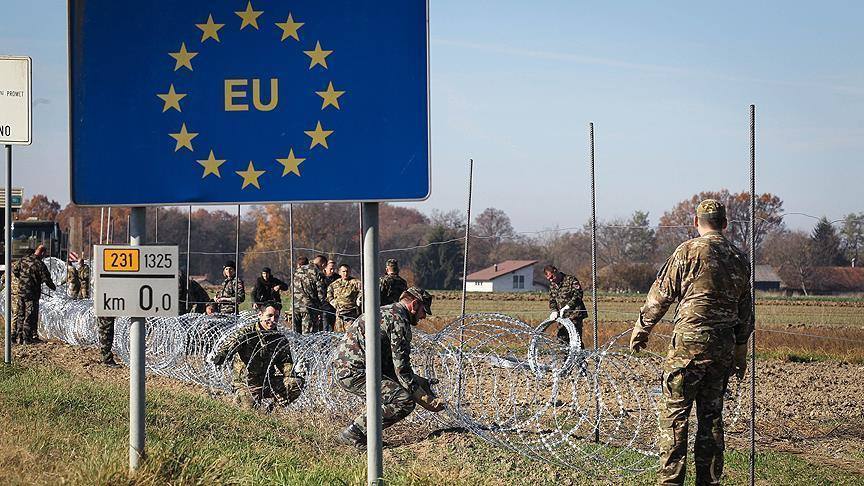Is the Schengen Dream Fading?
By Arsenii Glazunov | Published on December 2, 2024

The concept of free movement is one of the cornerstone principles of the European project. This idea was formalized nearly 40 years ago, in 1985, when an agreement was signed near the Luxembourg village of Schengen, effectively eliminating checks at the internal borders of participating European states.
Fast forward to 2024, and the Schengen Area now encompasses all European Union (EU) states except Cyprus and Ireland, along with four non-EU nations: Norway, Iceland, Switzerland, and Liechtenstein.
However, the question of whether the framework still holds any value to the EU states is an acute one. It seems that the European ideal of free movement has now entered its crisis stage. Over the past decade, political rhetoric from numerous European leaders suggests that the commitment to this principle is not as strong as might have been anticipated.
Currently, nine countries have imposed internal border controls, which run contrary to the values of free movement. In September, German Chancellor Olaf Scholz added Germany to the list of countries having such measures, joining Austria, Denmark, France, Italy, Norway, Sweden, Slovenia, and the Netherlands.
It is important to note that technically, internal border controls within the Schengen Area are prohibited. However, states have an opportunity to justify them as temporary security measures when faced with exceptional risks.
In theory, this flexibility might seem reasonable. Closure of borders is a secure way to prevent the external threats facing the state and respect the sovereignty of each member. However, the constantly growing number of countries adopting these measures raises serious concerns about the strength of the Schengen framework. Many of these "temporary" controls have become de facto permanent, with countries repeatedly extending them since 2015.
The root cause of this challenge lies largely in rhetoric surrounding immigration. Across the EU, governments found themselves under increasing pressure from their electorates to address the issue of mass migration.
Events over the past decade, including the 2015 refugee crisis, conflicts in the Middle East and Ukraine, and rising crime rates in parts of Europe, have intensified migrant flows and, hence, internal pressures.
Domestic politics in many EU member states reflects this shift. Netherland’s Party for Freedom’s rise to power and Germany’s Alternative for Deutschland (AfD) remarkable growth in prominence can be directly linked to their strong anti-immigration platforms. Once in positions of influence, these parties are expectedly able to exert pressure on their governments to adopt stricter migration policies.
There is also essentially a trust problem among the European allies. Shifting political dynamics have created deep ideological divides within the EU. The newly formed hard-right Patriots for Europe group, which has been framed by many as the chief trouble-maker in the EU Parliament, now, however, seems to be enjoying the role of the kingmakers with regards to the Union’s migration policy.
Further, efforts to reform EU migration laws have faced resistance, particularly from states with staunchly anti-immigrant agendas. Both the Netherlands and Hungary, for example, have sought opt-outs from the bloc's migration policies, arguing they conflict with their domestic priorities to combat migration.
This ongoing tension reflects, perhaps, a broader clash between the competing principles of sovereignty and cosmopolitanism. The once-prevailing Western consensus around globalization now seems a distant memory. Instead, a new wave of politics emphasizing isolationism and national sovereignty is gaining traction, resonating strongly with many citizens. This was evidenced by the events across the Atlantic with the recent U.S. Presidential election and the success of Donald Trump’s brand of politics.
As politicians respond to these shifting sentiments, there is little incentive to invest significant political capital in preserving the Union’s frameworks. The Schengen Area, and the principle of free movement it represents, was already heavily criticized during the Brexit campaign. With many European countries sharing similar anti-immigration sentiments, this moment could be seen by some politicians as an opportunity to take a similar stance and exploit these grievances.
Has Schengen become merely a relic of the old ‘consensus’, now seen as increasingly irrelevant? The Schengen Area has long been a defining symbol of the European project, almost synonymous with the EU itself. While its outright collapse may seem unthinkable, also given its obvious economic benefits, the rising prioritization of national interests over collective European ideals raises serious doubts about its future. As member states focus more on addressing domestic concerns, the vision of a borderless Europe becomes ever harder to sustain.